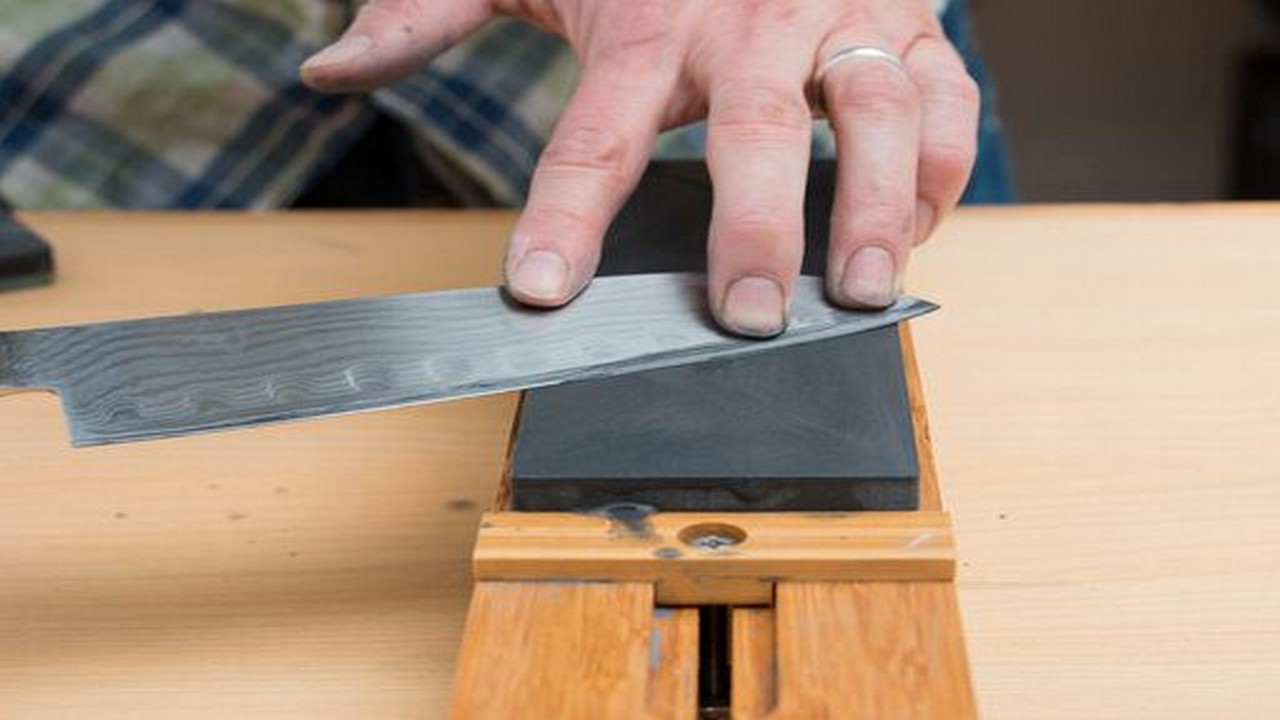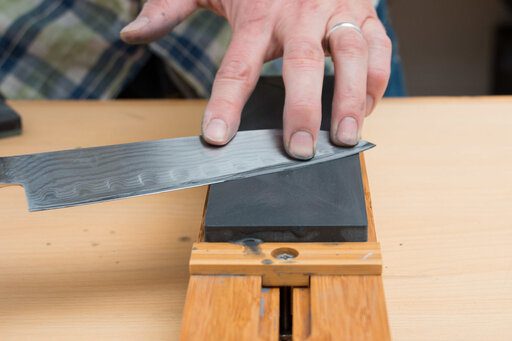Care and Maintenance of Damascus Knives

Damascus Knives can be strong, resilient and reliable anytime you have fine metal blades. There are certain care and maintenance practices. That must be followed to ensure the ongoing performance of your knives.
Clean your Sahrpen Damascus Knife with warm water and soap afterward, then dry it off.
For more thorough cleaning, use a damp cloth and mild detergent but avoid using solvents or overly abrasive materials. They can damage the steel.
For corrosion and small rust spots, use a tiny bit of olive oil on a soft cloth to gently rub away any imperfections. One of the best ways to ensure your Damascus knife remains pristine is by regularly sharpening it.
This can prevent corrosion, keep the blade edges sharper for longer, and give you a better cutting performance.
When sharpening Damascus blades, finer grits should be used, like 1000 grit or higher.
You will also want to use honing oil or water for better results. Taking proper care of your Damascus knives will help maintain their strength and beautiful patterns and get the most out of each use!
How Often Should You Oil a Damascus Knife?
To maintain its performance and a great look, Damascus knife making supplies should be oiled at least once a year. As part of your aftercare routine, you should use a small amount of vegetable or food-grade mineral oil to moisten the blade and handle lightly.
You should also avoid exposing your Damascus Knife to extreme temperatures or conditions, as this could damage or warp the drying process used to etch these beautiful patterns into the blade. With proper maintenance and upkeep, your Damascus Knife will last for many years!

What Oil is Good for Damascus Knives?
The best oil to use when caring for a Damascus Knife is vegetable oil or food-grade mineral oil. Bearing this in mind, you should avoid using oils that contain beeswax, turpentine, or other solvents. These could damage or weaken the blade over time.
Lightly apply the oil to the spines and ricassos of each knife before wiping off the excess with a lint-free cloth. This should help keep your Damascus Knife looking fresh and new!
Can I Use Olive Oil on My Knife?
Olive oil is not recommended for use on a Damascus Knife. Because its acidic properties can corrode and damage the blade’s surface over time. It may also contain chemical additives that are not suitable for long-term use. So it’s best to stick to vegetable or food-grade mineral oil designed for knife care.
Can I Use Vaseline on Damascus Steel?
Yes, Vaseline can be used on Damascus steel to provide moisture resistance and a small layer of protection against corrosion.
Be sure to always use a very small amount of Vaseline. When treating Damascus Blanks, the natural oil content in the petroleum jelly can accumulate over time. Leading to an unwanted build-up that could damage the surface of your knife blade.
Why is My Damascus Knife Rusting?
Rust results from oxidation or corrosion, a process caused by air and moisture. Basic knife maintenance is critical to staving off the rust on your Damascus blade – keep it clean and dry between uses, oil the blade regularly, and store it safely.
It would help if you avoid contact with water or other liquids whenever possible to help prevent rust from developing.
Does Damascus Steel Stay Sharp?
Damascus steel can stay sharp for a long time after being honed and properly taken care of. In general, any properly cared for and regularly maintained knife will retain its sharpness for longer periods. However, due to the distinctive patterns within Damascus steel, it tends to hold an edge better than other knives.

Understand Damascus Steel Composition and Characteristics.
If you’re a knife maker with a Damascus knife, it’s essential to understand the properties and composition of traditional Damascus steel.
Usually made with alternating layers of high-carbon and low-carbon steels. Damascus blades are known for holding an edge for a longer period compared to other knives. Their striking patterns make them aesthetically pleasing. It is also important to note that rust can form on the blade if not properly cared for.
